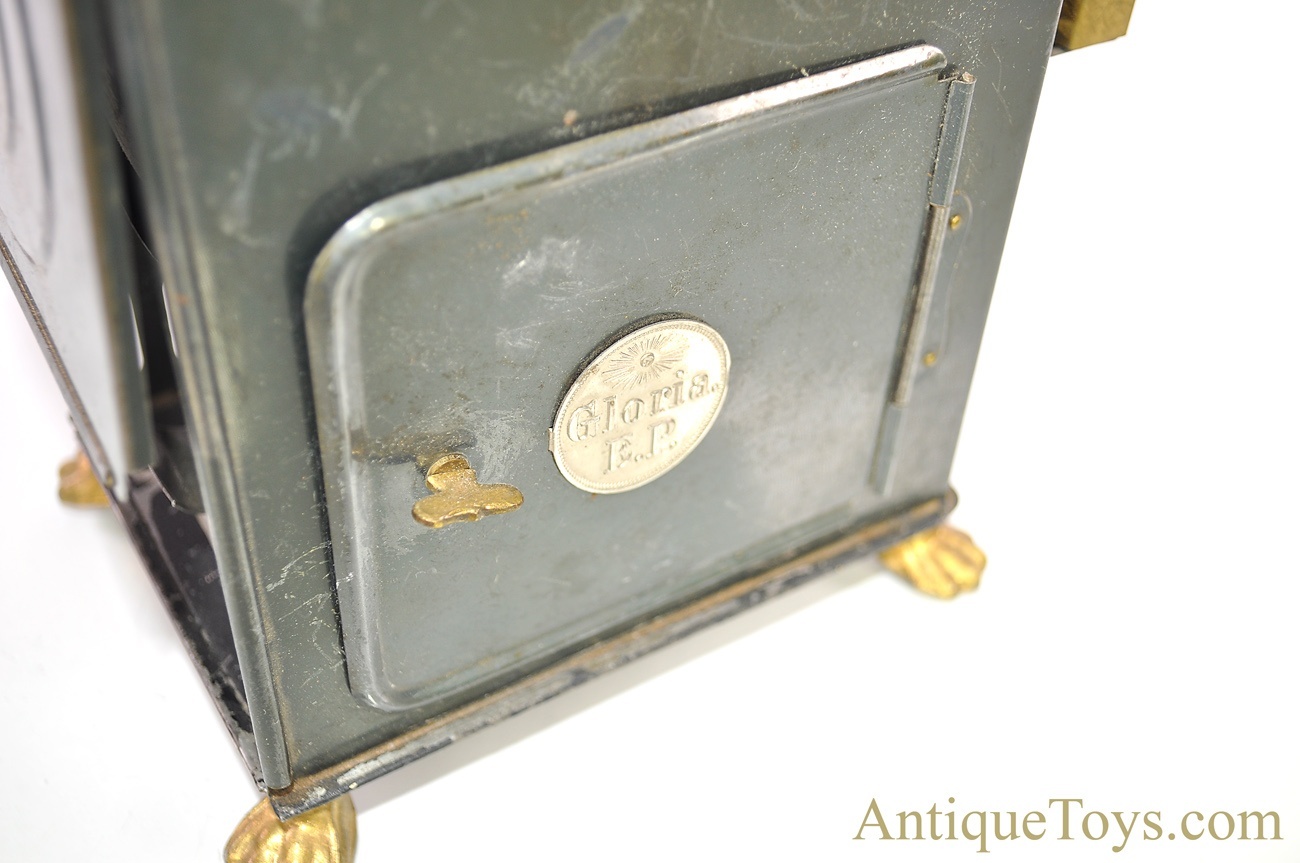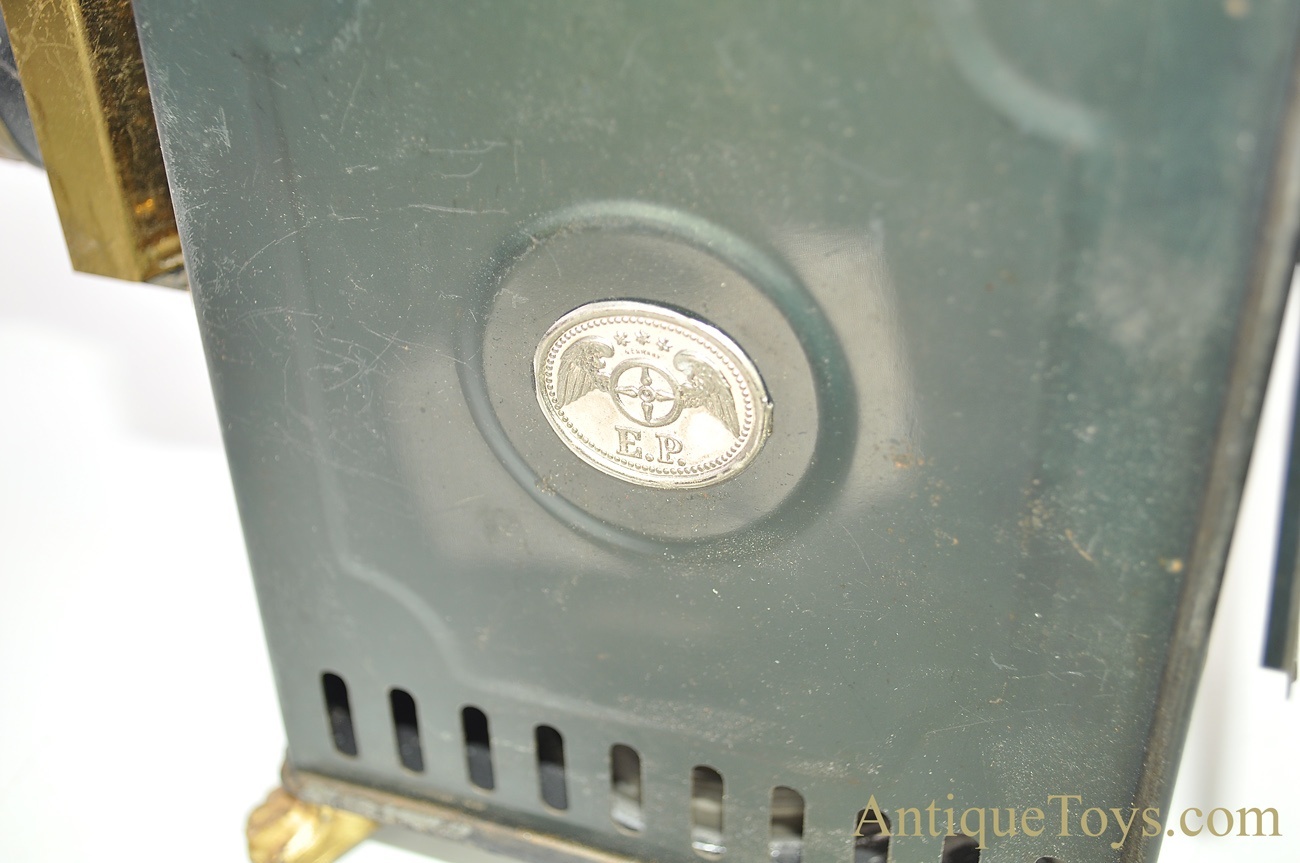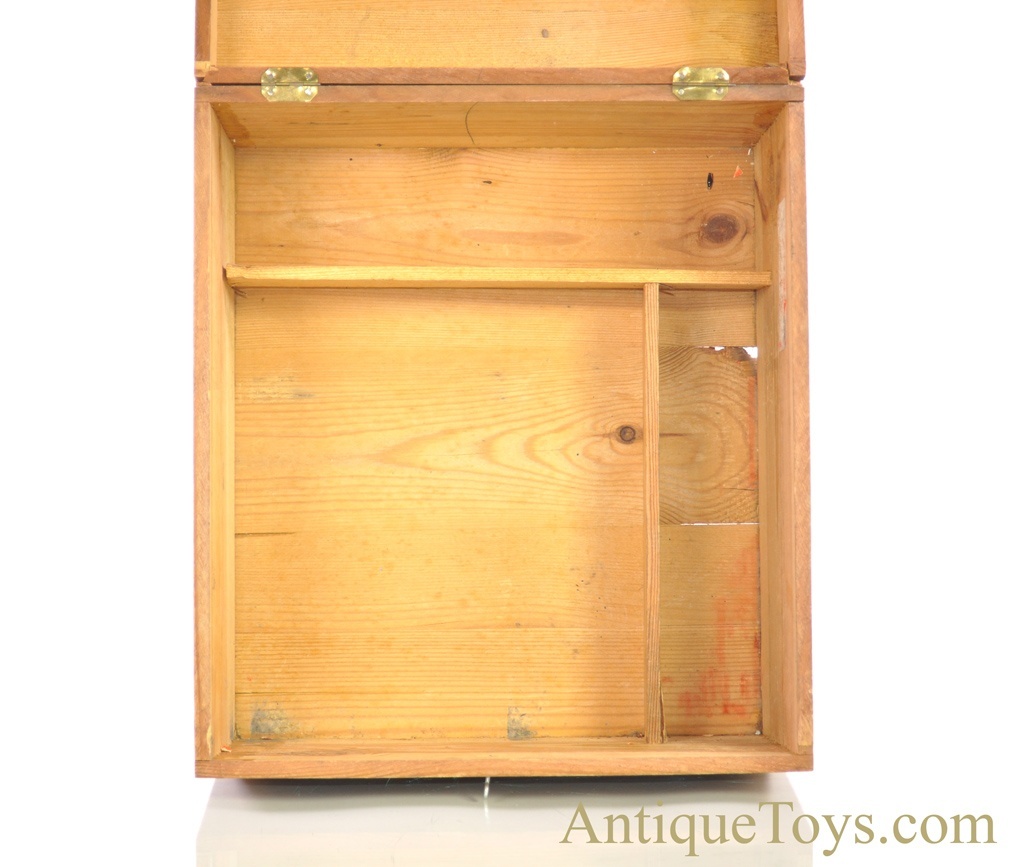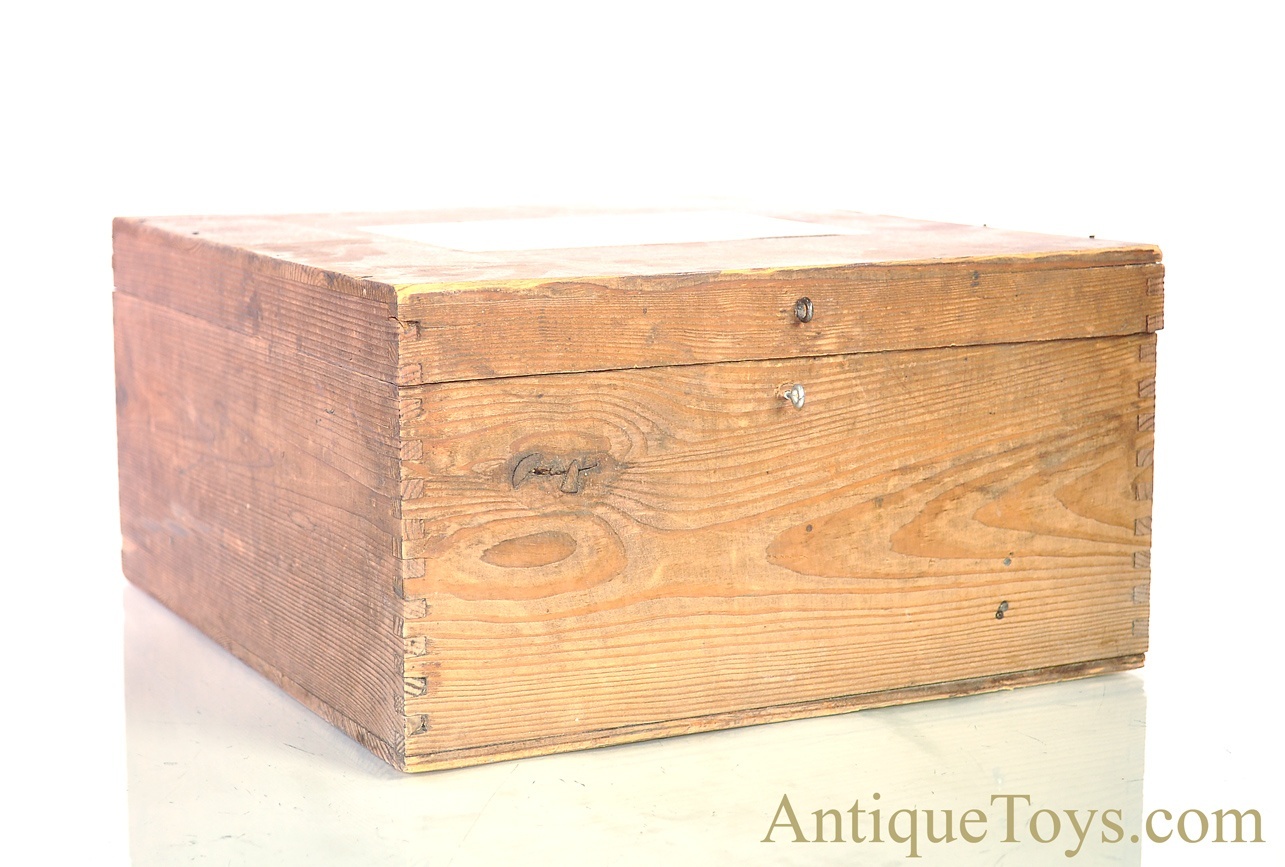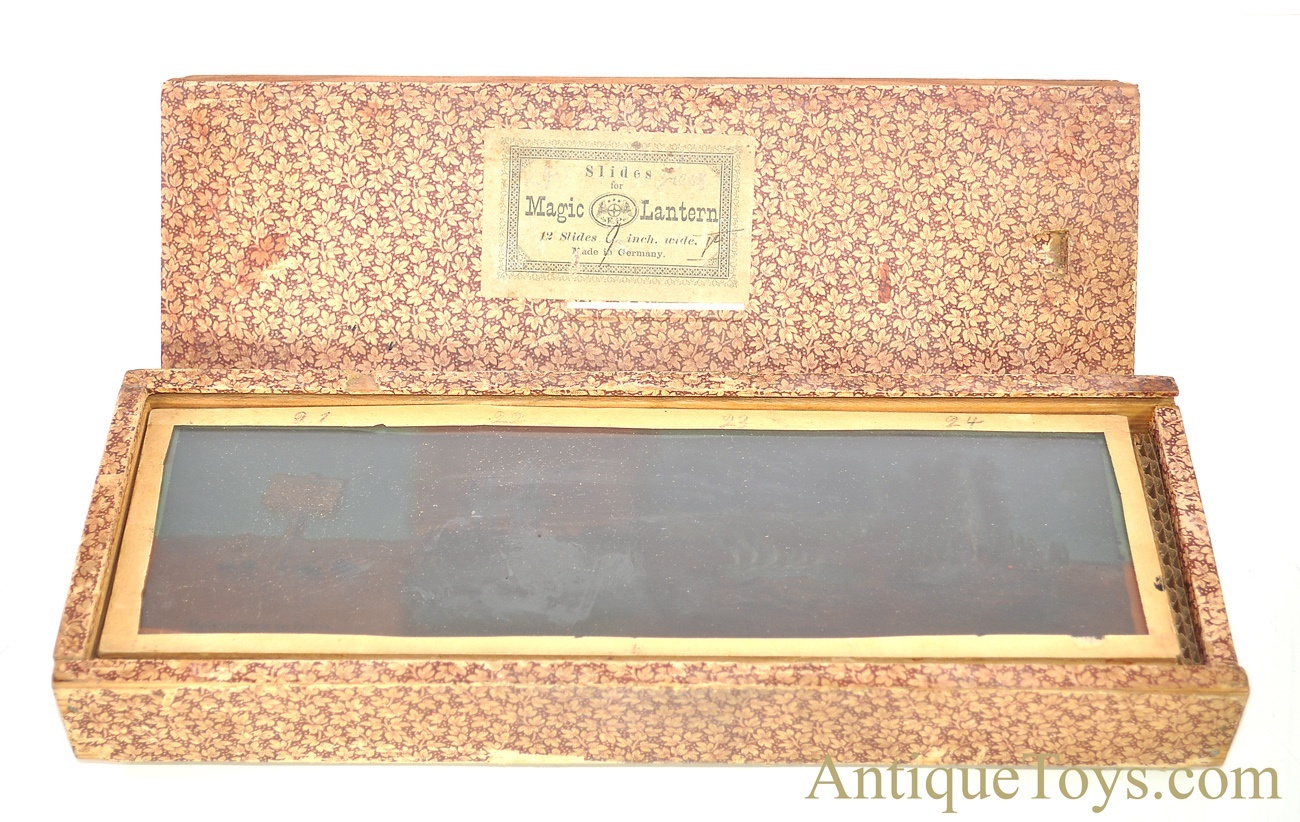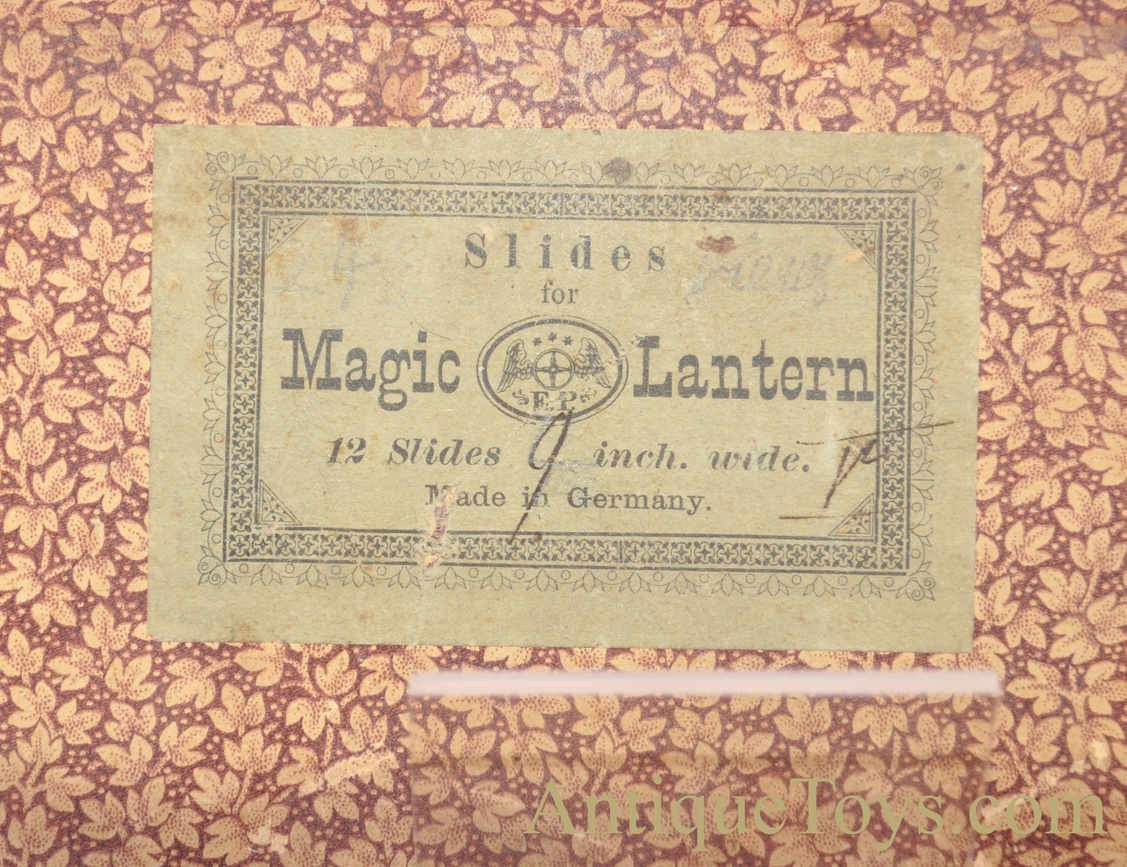Ernst Plank “Lanterna Magica” #1518 Gloria Nr. German Tin Oil Lamp Magic Lantern Projector with 12 Slides & Wooden Box, Plus Extra Box of 11”x 3.5” Glass Slides *SOLD*
Ernst Plank “Lanterna Magica” #1518 Gloria Nr. German Tin Oil Lamp Magic Lantern Projector with 12 Slides & Wooden Box, Plus Extra Wooden Box of 11”x 3.5” Glass Slides
We have a special treat for those of you who enjoy the “magic” of a magic lantern. This is an antique tin oil lamp “Lanterna Magica” #1518 Gloria Nr. magic lantern projector with original box, 12 glass slides, and instructions manufactured by Ernst Plank of Nuremberg, Germany. Also included with this set is an Ernst Plank wooden box with slides for a larger magic lantern.
The lamp works by putting oil into the base with a wick, adjust the flame and close the mirrored hatch. Place a slide in the slide holder and watch the still scene project on to whichever surface you choose. We did not test this because we were cautious about ruining this piece or starting a fire with the oil.
Lets break down what all comes with this set. You get the golden claw footed tin lantern that has its lens, oil lamp, mirror and all original parts. It comes with its original wooden box marked “Lanterna Magica” #1518 with the original paper artwork on the front that is in beautiful condition. The latch on the front of the box only has two eye screws, we are unsure if these are original. It comes with the original instructions so you know how to work it. It also comes with 12 original glass projection slides with the E.P. (Ernst Plank) mark on the corner. The slides are 7” L x 2” W, two have cracks and a couple have scorch marks from the lantern getting to hot on the slide. In addition to this beautiful set, we have included an extra box of glass slides meant for a larger projector. The box they come is not the original box to these slides. The box is a beautiful wooden paper covered box that has the Ernst Plank marking and says “Slides for Magic Lantern”, “12 Slides 9 inch. Wide.”, “Made in Germany.” However, inside of the box are 6 glass 11” L x 3 ½” W slides depicting various America historical sites. These slides do not show any makers mark, but they are in excellent shape with no cracks.
Magic lanterns were invented in the 1600’s and were the earliest for of slide projector. These simple yet ingenious devices have a long and fascinating history. Many of the first magic lanterns were illuminated by candles, but as time went on and new technologies were invented they began to be illuminated in other more powerful methods. By the 18th century the magic lantern became a common form of entertainment and education in Europe. The Magic Lantern Society tells us that, “The earliest known “lanthorn show” in the U. S. was in Salem, Massachusetts, on December 3, 1743, “for the Entertainment of the Curious.” But the source of light for lanterns in this period—usually oil lamps—was still weak, and as a consequence the audiences were small.”
This piece is in excellent all original condition with no breaks, restorations, repairs, or touch ups. The paint is very strong overall with the usual patina, scratches, dust, scuffs, surface rust and chips that are seen with age and play. The lantern is approximately 10” L (with lens attached) x 4 ¾” W (foot to foot) x 17 ¼” H (with stack). This is a pretty impressive piece that would be a great addition to any collection. We encourage you to examine the photographs to get a better idea of condition and quality.
A brief history of Ernst Plank of Nuremberg, Germany:
1866 – early 1900s
Founder: Ernst Plank
Specialty: Tin trains, airplanes, boats, and automobiles.
Started in 1866 and named after its founder, the company initially built toy steam engines and magic lanterns at Hochfederstrasse 40 in Nuremberg. Ernst Plank was one of the first companies to produce toy steam engines and became famous for its copper and tin toys. The company manufactured stationary steam engines along with steam engines and track. Some railway carriages and accessories were produced alongside Märklin. The company suffered during the economic crisis in the 1920s, losing the majority of its market significance. Ernst Plank toy trains are highly collectable in part due to their rarity.
Additional information
| Weight | 9.75 lbs |
|---|---|
| Dimensions | 24 × 24 × 15 in |
